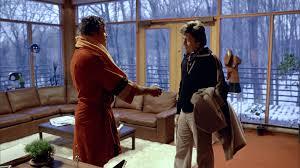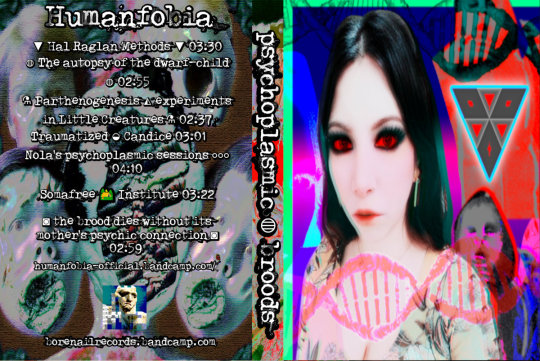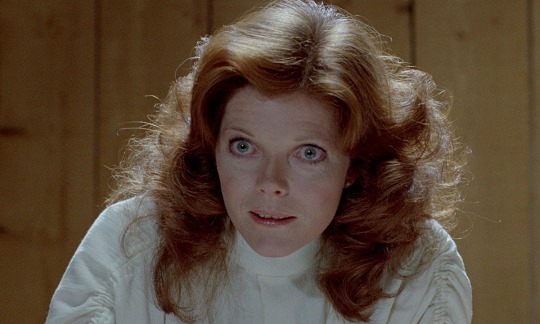#psychoplasm
Text

The Brood (1979) by David Cronenberg
Book title: The Shape of Rage, an Introduction to Psychoplasmics by Dr. Hal Raglan
#the brood#david cronenberg#books in movies#the shape of rage#hal raglan#psychoplasmics#fictitious books#fictitious books in movies
19 notes
·
View notes
Text
ℜ𝔢𝔳𝔬𝔩𝔱𝔦𝔫𝔤 - 𝔓𝔰𝔶𝔠𝔥𝔬𝔭𝔩𝔞𝔰𝔪𝔦𝔠𝔰
#Revolting#Hymns Of Ghastly Horror#Psychoplasmics#Release date:#September 7th#2012#Full-length#Genre:#Death Metal#Themes:#Horror#Death#Gore#Sweden
12 notes
·
View notes
Photo

'Biophage' (Original Demo) by PsychoPlasm
As a single cell organism, climb walls and ceilings, and find new ways to build up and maintain speed!
https://sonicfangameshq.com/forums/showcase/biophage.2314/
Support us on Patreon
23 notes
·
View notes
Text

// thanks to Phantasma Disques label for re-release our work: "psychoplasmic ◍ broods" under the title: "A Humanfobia Witch and Vapor Tribute to Cronenberg's The Brood" include 3 remixes by the legendary witch house pioneers Mater Suspiria Vision // please support the label and check out their awesome extense catalogue of releases. // also visit their bigcartel page for find releases on phisycal formats: https://phantasmadisques.bigcartel.com/
#witch house#horror synth#experimental music#witch house music#cronenberg#the brood#horror music#phantasma disques label#mater suspiria vision#creepy music#dark#Bandcamp
6 notes
·
View notes
Text


17 notes
·
View notes
Text
Hmm...hmm...yeah, I'm still just kinda low energy and stuff, so um. I've been catching up on laundry, which is good, but boring as fuck. Oh, and I gotta run the dishwasher tonight, too.
The Brood (1979)

Oh no, psychoplasmics sounds fake as hell.
1 note
·
View note
Text
we just watched The Brood, and you can see cronenberg's later body horror themes so clearly in their nascent forms, but the movie is repulsed by the monstrous in a way that kind of sours everything. this is explicit — the viewpoint character can't bring himself to look at the deformations of flesh that psychoplasmics causes, wincing away from cancer mushrooming from a man's next, or psychosomatic hives on another man's chest, or the parthenogenic fetus on his wife's body. the monstrous isn't merely destructive, as it is in later movies, it's something the main character resolves by destruction, choking his wife to death to save his daughter. the monstrous is something that happens to other characters, so it lacks the allure of transformation found in videodrome or naked lunch or the fly. those later movies make the monsters the main characters, and so sympathize with them, even if the brundlefly ends up destroyed no less than poor nola.
knowing that the movie was cronenberg's reflection on his own acrimonious divorce doesn't help, nor does knowing that he cast actors who vaguely resembled himself and his ex-wife, then had his self-insert strangle his ex-wife by proxy. there's a bitterness there that gets in the way of the ideas he'd do more justice to later.
0 notes
Text
The Brood


I certainly don’t like my movies easy. David Cronenberg’s THE BROOD (1979, HBO Max) was in many ways his breakthrough. It’s the best-cast of his early films, meaning there aren’t any cringeworthy performances. By his fourth feature, his technical work had become smooth, with editing enhancing the suspense just as his tracking shots suggest a sense of ever-shifting realities. But the story of a man (Art Hindle) fighting for custody of his daughter while his mentally ill wife (Samantha Eggar) undergoes risky, experimental therapy at the hands of a manipulative psychiatrist (Oliver Reed) can easily be dismissed as misogynistic, at least on the surface. It’s KRAMER VS. KRAMER (1979) with the wife as a monster. But she’s a monster under the control of a male who sees her not as a person in need of therapy but rather as a test subject. Reed’s “psychoplasmics” encourage patients to manifest their traumas physically. When they’re ruled by guilt, it results in boils and, in the worst case, cancer. But what happens with a child of abuse consumed by rage? The Criterion web page has Carrie Rickey’s excellent analysis of the film as a meditation on divorce and loss, though I think she makes a common error in viewing Reed’s character as sexually as well as psychologically manipulative. Watching the film, I was surprised at the amount of queerness injected by Cronenberg. Reed’s character seems very close to his assistant (Nicholas Campbell), and his jousting for power with Hindle takes on a sexual tinge. They have one of their confrontations while Reed is in a bathrobe, and Hindle resembles Campbell. Is he Reed’s type? In building his case for sole custody, Hindle interviews a former patient (Robert A. Silverman) who seems to be subtly coming on to him. Later Silverman introduces Hindle to another patient (Gary McKeehan) who’s having his own breakdown, and he gets awfully handsy with him. Does that make the film homophobic? I’m not sure. To me, it all fits into the geography of loss underlying the action. They’re all just desperate attempts to connect in a world that makes that impossible.
1 note
·
View note
Text

A mad doctor (Oliver Reed) tries psychoplasmic therapy on a raging woman (Samantha Eggar) soon to be a mother.
https://m.imdb.com/title/tt0078908/?ref_=ext_shr_lnk
0 notes
Audio
#the evil within#the evil within 2#tew#tew 2#video games#games#soundtrack#soundtracks#music#audio#psychoplasm#the evil within 2 psychoplasm#psycho break#horror#tew ost#sebastian castellanos#lily castellanos#myra castellanos#joseph oda#tew stefano#the evil within stefano#tew obscura#steam#steam games#bethesda#tango gameworks#tew sebastian#psychobreak#ost#the evil within ost
22 notes
·
View notes
Photo

#heroforge #heroforgechallenge #minifigures #xenomorphqueen #xenomorph #spawn #hellspawn #symbiote #necroplasm #psychoplasm #acidblood #hivequeen #sythe #sickle #hybrid #monster #giant #pincers #glowingteeth #crossover #imagecomics #darkhorse #toddmcfarlane #eggs #tentacles #multiplelimbs #multiarm #alienspawn #aliens #shespawn https://www.instagram.com/p/CSwVhmgr3Zf/?utm_medium=tumblr
#heroforge#heroforgechallenge#minifigures#xenomorphqueen#xenomorph#spawn#hellspawn#symbiote#necroplasm#psychoplasm#acidblood#hivequeen#sythe#sickle#hybrid#monster#giant#pincers#glowingteeth#crossover#imagecomics#darkhorse#toddmcfarlane#eggs#tentacles#multiplelimbs#multiarm#alienspawn#aliens#shespawn
0 notes
Text
The Brood (1979)

This is more effective contraception than condoms and the pill combined. In his quest to take any and all institutions and make them icky, Cronenberg here takes a scalpel to the fallout of a separation on a family, the psychological trauma of anger and hate. Under the thrall of controversial psychologist Hal Raglan, troubled mother and ex-wife Nola begins to experience closure. Of a sort. Hashing through past troubled relationships—her abusive mother and neglectful father, her jealousy at a teacher potentially canoodling with her partner Frank—Nola expresses relief after role-playing scenarios with Dr Raglan. But there is also a tangible side-effect of these “Psychoplasmics,” the sessions yielding the children of her hate, troglodytic creatures which resemble her beloved daughter Candice, if through a severely warped lens. Frank’s fear about the situation is twofold. Of course his daughter is in danger, especially after two of the brood capture her. But intermingled with this fear is a more masculine one. Dr Raglan is, after a fashion, procreating with Nola, ushering on her progeny through continued sessions. She’s cheating. And he can’t have that.
As is always the case with Cronenberg, the physiological implications of his metaphor are explored thoroughly. These offspring are not born but rather generated, Nola’s rage forming polyps which eventually grow to form fully formed expressions of hatred. Rage cannot be sustained forever, even at its strongest, and so too must the brood stop eventually. The remarkably astute coroner notes a sac-like growth in the brood offspring he autopsies, suggesting that it must feed off an internal energy supply and then starve to death. Direction of hatred towards a target urges fully developed members of the brood on to lash out at this adversary to mother. In this strange world, feminine rage must be shaped by men, informed by men, ended by men, all through violence and trauma. Frank’s only recourse to save his daughter is to kill the mother. In doing so, he inflicts even more trauma on an already shattered girl and plants the seeds for more death to come, hate-polyps appearing on the girl’s arm in the closing moments.
Seriously, don’t expect teachers to pull half the shit that Ruth Mayer does here. Really? She’s not your after-school care because you can’t be bothered to show up on time, and she’s sure as hell not your clean-up crew babysitter when it’s time to talk down drunk gramps from doing some dumb shit.
THE RULES
SIP
Someone names a type of family member like ‘father’, etc.
Children in insane snowsuits.
Someone says ‘Psychoplasmics’.
BIG DRINK
A psychiatric session begins.
Kiddies murder someone.
A teacher’s boundaries get crossed.
#drinking games#the brood#david cronenberg#oliver reed#samantha eggar#art hindle#horror#horror & thriller#body horror#psychoplasmics
2 notes
·
View notes
Photo

A new #Inktober2021 entry? SHOW ME! . #TheBrood was one of those horror movies I saw my freshman year in college and it blew me away. I’d seen my fair share of Cronenberg’s up til that point, but boy howdy was I NOT prepared for that ending. #SamanthaEggar’s performance is something special . #HorrorMovies #Illustration #Illustrator #Ink #Inktober #Nola #Psychoplasmics #BlackAndWhite #Portrait #TraditionalArt #Halloween #DavidCronenberg https://www.instagram.com/p/CVTZ86VvMYu/?utm_medium=tumblr
#inktober2021#thebrood#samanthaeggar#horrormovies#illustration#illustrator#ink#inktober#nola#psychoplasmics#blackandwhite#portrait#traditionalart#halloween#davidcronenberg
2 notes
·
View notes
Text
David Cronenberg's 'The Brood' on Criterion Channel
David Cronenberg’s ‘The Brood’ on Criterion Channel
David Cronenberg explores the shape of rage in The Brood (1979), his third feature to imagine the evolution of the human species as a produce of the effects of technology, disease, addiction, and mutation on the human body.
This one takes on the power of the psyche to transform the physical. Experimental psychologist Dr. Hal Raglan (Oliver Reed) develops a therapy that involves helping his…

View On WordPress
#1979#Art Hindle#Blu-ray#Cindy Hinds#Criterion Channel#David Cronenberg#DVD#Henry Beckman#Nicholas Campbell#Nuala Fitzgerald#Oliver Reed#Psychoplasmics#Robert A. Silverman#Samantha Eggar#The Brood#The Shape of Rage#VOD
0 notes
Text

"psychoplasmic ◍ broods" is now available at most popular music platforms. (not include track 7)
youtube
still there available DYI cassettes & CDr's via Borenail Records // if you can support the label:
#experimentalmusic#cronenberg#thebrood#idmmusic#witchhouse#witchhousemusic#darkelectronic#humanfobia#horror#horrorsynth#dark ambient#soundscapes#Spotify#Youtube#Bandcamp
12 notes
·
View notes
Text
Favorite Monsters - Nola Carveth

From: The Brood, directed by David Cronenberg, played by Samantha Egger
One of the unfortunate truths is that victims can very easily become victimizers. Deny someone a chance at any sort of catharsis or resolution with the one that hurt them and the anger and pain gnawing away at them will start seeking a more available target. And I don't think you're going to find an example more horrific or heartbreaking than the one from David Cronenberg's 1979 body horror film, The Brood.
Nola Carveth is a woman left mentally unstable by years of abuse by her alcoholic mother and neglect by her father. Her marriage has collapsed and she's in a bitter custody battle with her ex-husband Frank, who is convinced Nola's instability makes her a threat to their daughter, Candice. In order to seek help, Nola places herself in the care of Dr. Raglan, (Oliver Reed!) head of the Soma Free institute, a psychiatric care facility that practices a controversial technique dubbed "psychoplasmics." (Hey, that sounds familiar.) What this entails is Raglan using role-playing sessions to get his patients to direct an intense emotional reaction towards the individual they feel is responsible for their trauma...so intense, in fact, that it causes their emotional trauma to manifest physically! Whatever effect this treatment is having on Nola, it certainly has Raglan's attention,* and his work at the institute becomes more and more focused on her alone. And you can probably guess that whatever is going on is connected to these strange creatures that turn up and attack anyone Nola has any sort of negative feeling toward. Creatures that, for all their inhuman aspect, disturbingly bare more than a passing resemblance to young Candice.
The Brood came about as a result of Cronenberg's own messy divorce and custody battle with his mentally ill ex-wife. (In "Cronenberg on Cronenberg" he joked that The Brood was "Kramer vs. Kramer but more realistic.") And one can feel that he was dealing with a lot of personal demons when making this movie because The Brood can only be described as an absolute raw nerve of a film. It's shot through with that mixture of dread, mental exhaustion and sadness that is all too familiar for someone who had to spend any significant amount of time around an unstable abuser and its the authenticity of that which gives it a stronger chill than the grey winter days that serve as its backdrop.
And at the center of it all is Nola. A woman who years of mistreatment have left with volcanic emotions, tripwire mood swings. Fiercely defensive of the stability of her family in the worst way. A monster that would sooner kill her own daughter than let her be taken from her. And that's before you add in psychoplasmics granting her the ability to make her inner demons very real, every man's fear and confusion about the female body amped up to nightmare levels. And yet for all her monstrous nature, The Brood never loses sight that she's another victim, that she's broken. (Some sympathy still there in Cronenberg for his ex-wife?) I don't know what to think you if you can watch the scene where, with Dr. Raglan taking on the role of her father, Nola breaks down crying before screaming "YOU WERE SUPPOSED TO PROTECT ME!" and your heart not break for her. Despite all the insanity going on in this movie, you recognize her.
Things don't end happily for Nola. Honestly, how could they? The anger and pain she became defined by leads to not only her destruction but we're left with signs that she passed her condition on to her daughter. Maybe an on-the-nose metaphor but an incredibly true one. They may not involve venereal mutations and rage monsters, but The Brood is a story that's played out before and will play out again, many, many times.
*For all the accusations of misogyny Cronenberg's earlier films received, one can't help but notice that the reoccurring theme across several of them is a pretty clear 'QUIT USING VULNERABLE WOMEN AS GUINEA PIGS, YOU NUMBNUTS!"
13 notes
·
View notes